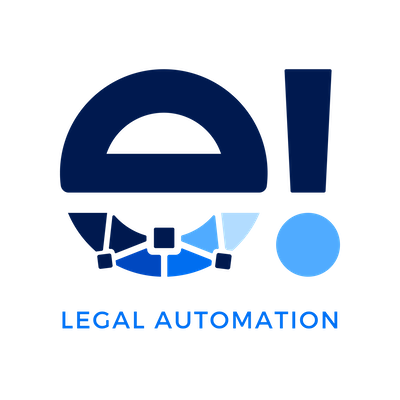E-discovery is undergoing a transformative shift with the advent of LegalTech. The emergence of No-Code Legal Automation and the application of Large Language Models (LLMs) are leading this change. These innovative technologies are revolutionizing the workflows of legal professionals and significantly enhancing the efficiency and accuracy of the e-discovery process
No-Code Legal Automation: A Game Changer
The Power of Simplicity
The rise of No-Code Legal Automation is a testament to the power of technology in transforming traditional industries. This trend, which has been gaining significant traction in recent years, is a game-changer for the legal industry. It is democratizing access to legal processes by enabling legal professionals to automate complex tasks without the need for coding knowledge.
The beauty of No-Code Legal Automation lies in its simplicity. It allows legal professionals to design and implement automated workflows using intuitive, drag-and-drop interfaces. This means that even those without a technical background can leverage the power of automation to streamline their work processes.
No-Code Legal Automation in E-Discovery
In the context of e-discovery, No-Code Legal Automation can be particularly beneficial. E-discovery, the process of identifying, collecting, and producing electronically stored information (ESI) in legal proceedings, is often time-consuming and costly. It involves sifting through vast amounts of data to find relevant information, a task that can be daunting and prone to human error.
With No-Code Legal Automation, legal professionals can automate many aspects of e-discovery, from data collection to document review. This not only speeds up the process but also reduces the risk of human error. For instance, automation can help ensure that all relevant data is collected and nothing is overlooked. It can also help standardize the document review process, ensuring consistency and accuracy.
Cost Savings and Efficiency
Moreover, No-Code Legal Automation can lead to significant cost savings. By reducing the time spent on manual tasks, it allows legal professionals to focus on more strategic aspects of their work. This not only improves efficiency but also enhances the quality of legal services.
Large Language Models: The Future of Legal Research
Revolutionizing Legal Research
Large Language Models (LLMs), like ChatGPT, represent the cutting edge of AI technology. These models, which are trained on vast amounts of text data, can generate human-like text, making them a powerful tool for a variety of applications.
In the legal industry, LLMs are revolutionizing the way legal research is conducted. They can understand and respond to natural language queries, making it easier for legal professionals to find the information they need. This is a significant improvement over traditional legal research methods, which often involve sifting through vast amounts of legal texts and case law.
LLMs in E-Discovery
In the context of e-discovery, LLMs can be particularly useful. They can be used to review and analyze large volumes of documents, identifying relevant information quickly and accurately. This can significantly speed up the e-discovery process, making it more efficient and cost-effective.
Moreover, LLMs can help reduce the risk of human error and bias in document review. By using AI to review documents, legal professionals can ensure that the review process is consistent and unbiased. This can lead to more accurate and reliable results, enhancing the quality of legal services.
Generating Legal Texts
Furthermore, LLMs can be used to generate legal texts, such as contracts or legal briefs. This can save legal professionals a significant amount of time and effort, allowing them to focus on more strategic aspects of their work.
By automating the creation of these documents, firms can increase their productivity and reduce the potential for human error. This also allows for a more efficient allocation of resources, as legal professionals can spend less time on routine tasks and more time on complex legal issues that require their expertise. This new era of efficiency brought about by LLMs is truly transforming the legal landscape.
Conclusion
No-Code Legal Automation and Large Language Models are reshaping the landscape of e-discovery. They offer promising solutions to some of the most challenging aspects of legal work, making processes more efficient, accurate, and cost-effective. As these technologies continue to evolve, we can expect them to play an increasingly important role in the legal industry. The future of legal work is here, and it is being shaped by these transformative technologies.






